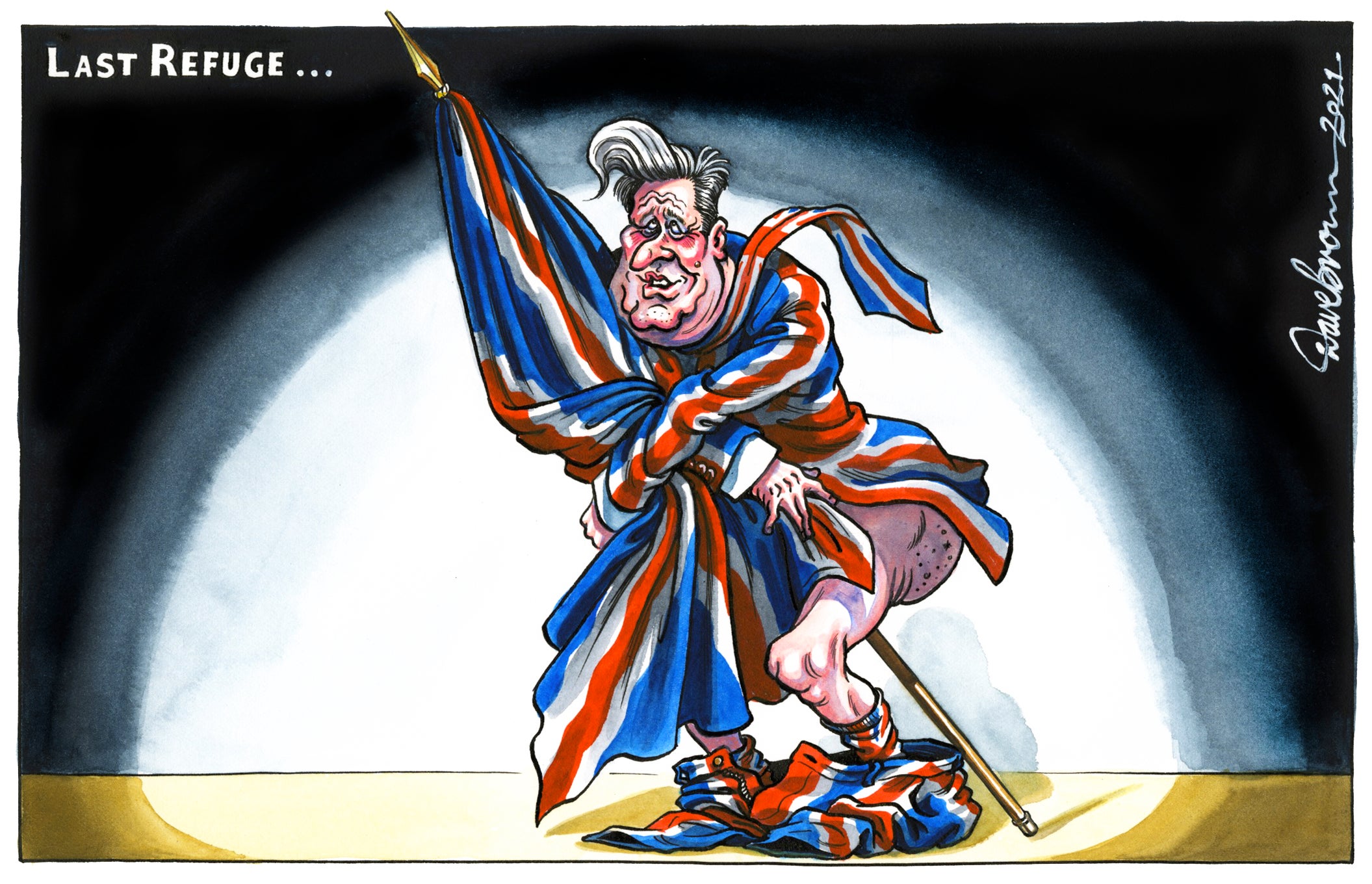Will flags and smart suits win votes for Labour?
Sean O'Grady considers how the party’s reported strategy to regain seats has worked for former leaders


In the words of a leaked Labour internal memo, “the use of the flag, veterans, dressing smartly at the war memorial etc gives voters a sense of authentic values alignment”. Aside from the market research jargon – the document having been derived from focus group research – you have to wonder about a party being “authentic” if it is being encouraged to do things that it is not doing already, that is to say naturally, voluntarily and, erm, authentically. Would not the voters be able to sniff out the subterfuge? Or is it more a case, as the late Bob Monkhouse once said, that the public love sincerity? “If you can fake that, you can fake anything,” he said.
Which brings us rather neatly to Tony Blair and New Labour. While no doubt Keir Starmer is sincere (and authentic) in his professed desire not simply to be a reimagined Blair, there is no mistaking his quest to push Labour towards the centre ground of politics and to win back lost voters in what are now termed “foundation seats”, formerly “red wall” or, latterly, “blue wall”. Not only is this a matter of policy, but of image and appearance, adopting the demeanour of what prospective or defected Labour voters wish their leaders to sound and look like. After all, the electorate in places such as Sedgefield (once represented by Tony Blair) and Bolsover (ex Denis Skinner) were won over by the plummy Old Etonian Boris Johnson, a man who constantly drapes himself in the national flag, and may, for all we know, wear Union Jack undercrackers. Presumably under some edict, no government minister is permitted to be on television without at least one union flag behind them, a novel and vaguely fascistic fashion.
The right, and especially the far right, has long tried to appropriate the Union Jack, cynically implying their opponents lack patriotism. To some degree, it worked, and this was the kind of thing that Labour tried to deal with through various makeovers in the 1980s. After Michael Foot turned up at the Cenotaph in 1981 wearing what was called a donkey jacket (in fact a car coat) the high priests of Labour revisionism vowed never again. After Peter Mandelson took over Labour’s image-making in 1985, there was an injection of professionalism and style. Out went the old red banner party logo and in came a graceful almost Shakespearean red rose. Neil Kinnock was told to discard his combover hairstyle, sports jackets and slacks in favour of sharp dark suits, diagonal striped military-style ties and shiny shoes. The party organised a prime ministerial looking Jaguar for him to be chauffeured in. He looked more like a bank manager than a polytechnic lecturer, but the public was perhaps not entirely convinced it was “authentic”. Labour still lost the 1992 general election.
Under Blair, the Union Jack was even more in evidence, the clothes even smarter. Blair sometimes resembled a male model for a Jermyn Street tailor, but it felt more authentic in his case. Only on one occasion did his sweat glands get the better of him and spoil one of his jacket-off appearances. But he was smart, in more senses than one.
When New Labour won its landslide in May 1997 – “a new dawn has broken, has it not” – the PR people packed Downing Street with crowds of well-wishers, waving little union flags. Blair and his team continually stressed their patriotism, their reverence for the flag, monarchy and armed services, and made their purpose to put Britain first.
In due course, Blair was to be very heavily identified with the transatlantic alliance. In essence, every Labour government has always done so, and plenty of “old Labour” politicians had fought in the war, and few had much affection for the “socialist” Soviet Union. But somehow the Conservatives always managed to persuade some that voting Labour, let alone being a candidate or leading it, was tantamount to treason. The way the Brexit debate was framed allowed such canards to take flight again. The infamous episode when Emily Thornberry derisively tweeted an image of a house with a St George’s flag and a white van outside came to be symbolic of a certain perceived contempt for simple patriotism. So did the culture wars about the proms and Jeremy Corbyn not singing “God Save the Queen”. David Cameron, in a flashman moment even told Corbyn to straighten his tie, though one can’t imagine Johnson ordering anyone to tidy themselves up.
In any case, it is now Starmer’s turn to polish his shoes and – as important – his policies and rhetoric to persuade people “left behind” that he really is on their side. He has already piloted a Union Jack backdrop and there will no doubt be more to follow. He’d look great atop a tank in an army flak jacket. Wouldn’t he?

Join our commenting forum
Join thought-provoking conversations, follow other Independent readers and see their replies
Comments